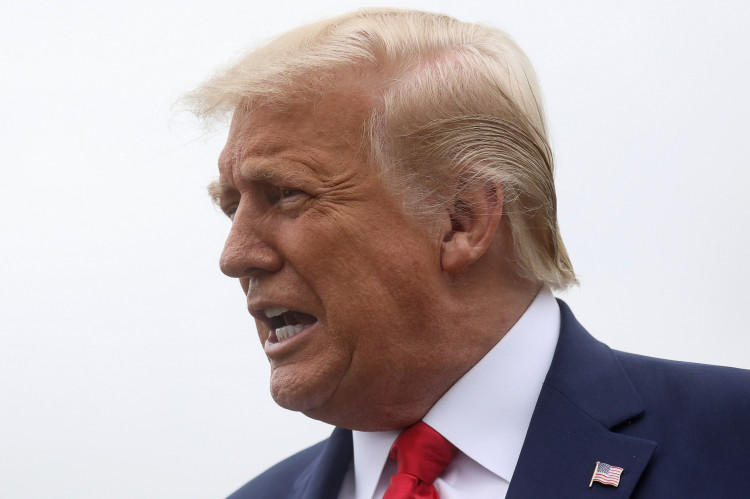Allen Weisselberg, the former Chief Financial Officer of the Trump Organization, has found himself ensnared in the legal quagmire once again, pleading guilty to perjury charges in a Manhattan state court. This marks Weisselberg's second conviction within a year, following his previous incarceration for tax evasion.
The 76-year-old admitted to providing false testimony during a civil fraud trial involving Donald Trump, receiving a five-month prison sentence set for next month. This development underscores the ongoing legal battles surrounding Trump's business empire, casting a shadow over the former president's legacy.
Weisselberg's guilty plea opens another chapter in the tumultuous saga of Trump's legal entanglements. The Manhattan District Attorney's office underscored the gravity of lying under oath, highlighting the case's significance. Despite the impending prison term, Weisselberg's plea deal spares him from testifying in Trump's forthcoming hush-money trial concerning adult film actress Stormy Daniels. This arrangement points to the intricate legal strategies at play, as Weisselberg navigates the consequences of his loyalty to Trump.
The plea deal, which absolves Weisselberg of further cooperation in the hush-money trial, raises questions about the depth of his involvement in the Trump Organization's alleged financial misdeeds. Weisselberg's admission of perjury, specifically regarding the valuation of Trump's Manhattan penthouse, reveals the intricate web of deceit spun within Trump's business dealings. Judge Arthur Engoron's scathing critique of Weisselberg's "intentionally evasive" testimony in the civil fraud case further erodes the credibility of Trump's financial empire, painting a picture of systemic manipulation and falsehood.
As Weisselberg prepares for his sentencing, the implications of his legal woes extend beyond his personal predicament. The case sheds light on the broader issues of accountability and transparency within the Trump Organization, challenging the integrity of its financial practices. Weisselberg's role in the overvaluation of Trump's penthouse, as revealed during the trial, exemplifies the alleged schemes to inflate Trump's wealth, raising concerns about the ethical standards governing Trump's business operations.
The legal drama surrounding Weisselberg and the Trump Organization is emblematic of the challenges facing Trump's legacy. With Weisselberg's history of tax evasion and now perjury, the narrative of Trump's business acumen is tainted by associations with criminal conduct. The unfolding legal battles not only scrutinize Trump's financial dealings but also reflect on the moral and ethical underpinnings of his leadership, both in business and in his presidency.
As the Trump Organization grapples with the fallout from Weisselberg's convictions, the future of Trump's business empire hangs in the balance. The legal entanglements and the cloud of suspicion cast a long shadow over Trump's legacy, prompting a reevaluation of his contributions to the business world and his conduct in the public arena. The saga of Allen Weisselberg is a cautionary tale of loyalty, legality, and the consequences of crossing the line in the pursuit of power and profit.




